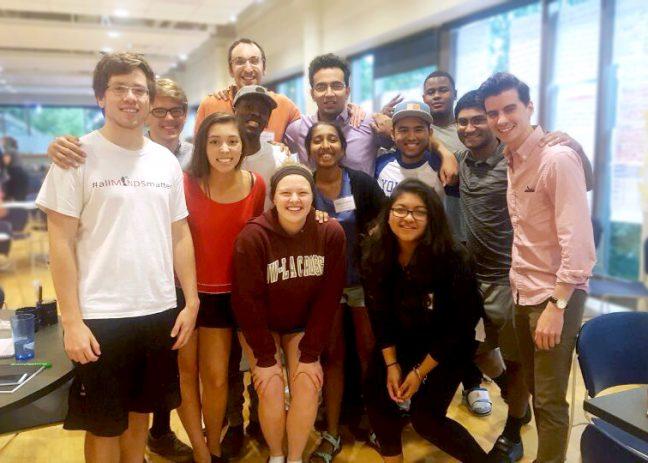When United Council for University of Wisconsin students was defunded in early spring, a group of students decided they were not going to sit around and leave their peers without a voice.
United Council represented students from all around the state at the local and national level on a number of issues. Assembly Republicans funded the council but were unable to continue doing so after early spring.
Aiming to continue United Council’s legacy and initiate one of their own, Wisconsin students created the Student Power Alliance. SPA looks to bring together students from all over Wisconsin and give them the ability to address student issues such as college affordability, sustainability or women’s reproductive health, UW-Madison student and SPA member Ian Oyler said.
“We are working toward engaging in workforce development and allowing students to connect with other students in Wisconsin and further their educational experience,” Oyler said.
SPA is a non-profit, non-partisan organization that branches out of a number of other organizations like UW-Madison Blackout and Blindside. It is an arm of Wisconsin Voices, an organization that works to improve community issues in the state, Oyler said.
Bringing Wisconsin’s students together
The organization’s main focus this semester is to link campuses around Wisconsin, including technical colleges and two-year universities. SPA member Lindsey Zblewski said current SPA members come from UW-Madison, UW-La Crosse, UW-Milwaukee, Lawrence University and UW-Fond Du Lac, among other institutions. Of these, approximately six are UW-Madison students.
SPA’s UW-Madison chapter, also known as the Student X Coalition, is the first of its kind in the state. It will work to create and train individual student leadership teams on other campuses in effort to create chapters of their own, Oyler said.
Zblewski said representation from different institutions is paramount to effectively address student issues. SPA’s goal is to have student voices heard not only within their communities but also on higher platforms like the state legislature, she said.
“We want to get students to come together through different campuses and see what we want Wisconsin to look like,” Zblewski said. “Because we are the youth and we will be continuing to the career force.”
Addressing student issues
Oyler said the student voice is not heard on a number of issues including but not limited to quality of life, environmental racism, Black Lives Matter, women’s reproductive health and affordable college tuition. He said college affordability and university funding are particularly popular issues among students.
The UW System Board of Regents requested $42.5 million in state aid for the 2017-19 budget, which is approximately half of the $95.2 million it requested for the 2015-17 budget. Oyler said this was not a feasible strategy because it seemed like UW System was not even “standing up for itself.”
“If anyone knows you always start out negotiating with a higher amount than what you actually think you need,” Oyler said. “Personally, and after talking with a lot of students, I don’t think it’s a good strategy for our administration and Board of Regents to be negotiating like that.”
Regents approve $42.5 million budget focused on developing workforce, college affordability
Zblewski said the funds that Board of Regents requested are “just not enough” to tackle important student issues. Organizations like SPA also need funds to provide resources for students and to reach out to campuses, which would not be possible with the current budget, she said.
Oyler said once SPA trains students, the students themselves will lobby for change and work on addressing issues that affect them. This training will primarily take place in Madison between Sept. 30 and Oct. 2 in a summit open to all Wisconsin students, he said.
UW faces ‘chaos, uncertainty’ from state budget cuts in upcoming semesters
Improving student outreach
With the November elections not too far off, SPA will also work on efforts to get the vote out. Wisconsin is among the top six states where youth could have a disproportionately high impact on the 2016 election. Oyler said SPA wants to increase voter turnout through outreach activities that will make students aware of how important their vote is.
Oyler said SPA is open to all students as a platform for them to voice their concerns and engage with other students. Zblewski said the organization also looks to reach out to students and staff outside of SPA to give a voice to their opinions as well.
“We want to be the future of outreach in Wisconsin’s workforce,” Zblewski said. “So it’s not just ‘hey talk to us’ but rather we want to talk to students and staff as well.”
To vote or not to vote: Many still unaware of voter photo ID law













